(MPI) – Implementing the direction of the Prime Minister, Head of the Steering Committee to review and handle difficulties in the system of legal documents in Section 5 of Notice No. 386/TB-VPCP dated August 16, 2024, the Ministry of Planning and Investment has drafted a dossier proposing the development of a Law amending and supplementing a number of articles of the Law on Planning, the Law on Investment, the Law on Investment under the public-private partnership model and the Law on Bidding.
| Illustration photo. Source: MPI |
The Law is designed to address urgent difficulties and problems in practical implementation related to planning, investment and business activities, investment under the public-private partnership model and bidding activities. At the same time, it simplifies administrative procedures, enhances decentralization and delegation of authority to localities, and strengthens inspection and supervision.
Regarding the viewpoint of law-making, focus on amending and supplementing some provisions of laws that are contradictory, causing difficulties and obstacles, and urgently need to be amended to create favorable conditions for investment, production and business activities.
Regulations that need to be amended or supplemented must have clearly defined content, amendment and supplement plans, and specific impact assessments; at the same time, ensure independence, stability, consistency, and inheritance of content when comprehensively amending or supplementing laws.
Ensure consistency and uniformity of the legal system; ensure conformity with international treaties to which Vietnam is a member and Vietnam's agreements and commitments; selectively refer to the experiences of countries related to policy content (if any) to ensure similarity between Vietnamese law and the laws of other countries.
Regarding the Law on Planning , the process of organizing the implementation of planning policies and laws in practice has encountered a number of difficulties and problems that need to be revised, supplemented, and improved to meet the requirements of socio -economic development.
Regarding the Investment Law , the Prime Minister 's authority to approve investment policies for industrial park infrastructure projects has been regulated and implemented consistently from 2005 to present in the Investment Law 2005, Investment Law 2014 and Investment Law 2020.
The summary of 30 years of construction and development of export processing zones, industrial parks and economic zones in Vietnam shows that the positive side of the Prime Minister's approval of the investment policy according to the above regulations is to actively contribute to the socio-economic development of the locality and the whole country, effectively attracting foreign investment in the context of the planning for the development of industrial parks that has not been built synchronously, strictly managed and the management capacity of localities is still limited; synchronously and uniformly developing the infrastructure system of industrial parks in accordance with the socio-economic characteristics of each locality, promoting the advantages of geographical location and economic development potential of the regions; improving land use efficiency; strictly managing the investment in construction and transfer of infrastructure investment projects in industrial parks; avoiding widespread development of industrial parks in localities, causing loss and waste...
Implementing the policy of perfecting and reforming institutions according to the Resolution of the 13th National Party Congress and the direction on promoting decentralization of state management in various fields of the Government and the Prime Minister, the Ministry of Planning and Investment finds that the implementation of the above regulations on approving investment policies in the past also requires consideration of decentralization to the People's Committees at the provincial level.
Regarding the assessment of the suitability of an investment project with urban planning, according to the provisions of Point a, Clause 3, Article 33 of the Investment Law, the assessment of the proposal for approval of the investment policy includes assessing the suitability of the investment project with urban planning... However, this provision has not specifically determined the level of urban planning, including general planning, zoning planning or detailed planning as the basis for assessment and evaluation of the suitability of the investment project.
Regarding the termination of activities for projects that are not implemented according to schedule, Article 48 of the Investment Law stipulates the termination of investment projects, including the termination of activities related to the implementation progress. However, the requirements/conditions for termination of activities are not clearly and fully defined or are not really suitable in some cases.
Regarding the Law on Investment under the Public-Private Partnership (PPP Law), in more than 03 years of implementing the PPP Law, there are 31 new projects being implemented and 11 projects being prepared for investment under the PPP method. These projects are all key, large-scale projects of the country and localities with a total investment of about 380,000 billion VND, requiring the use of about 190,000 billion VND of state capital. New PPP projects implemented under the provisions of the PPP Law are expected to form about 1,000 km of highways, 02 international airports with 4C standards, 03 special-level solid waste treatment facilities, 03 clean water supply plants, contributing to the expansion and upgrading of transport infrastructure, economic and social works of localities.
In addition to the achieved results, the implementation of projects under the provisions of the PPP Law still has some limitations and shortcomings: Regarding the field of investment under the public-private partnership method, according to the provisions of Clause 1, Article 4 of the PPP Law, investment projects under the PPP method are implemented in 05 fields of transportation; power grid, power plants; irrigation, clean water supply, drainage and wastewater treatment, waste treatment; healthcare, education - training and information technology infrastructure.
However, up to now, PPP projects have only focused on 03 areas, including: transportation (22 expressway projects, 03 airport projects, accounting for about 80% of the total number of new PPP projects), waste treatment (03 projects, accounting for about 10%) and clean water supply (03 projects, accounting for about 10%). In the health sector, there are 02 projects that have begun to be studied and proposed for implementation under the PPP method by the People's Committee of Da Nang City and the People's Committee of Yen Bai Province.
In addition, some ministries, branches and localities have the potential and conditions to attract investment under the PPP method in some other fields, but they are not yet regulated in the PPP Law. In fact, some localities have applied the PPP method to the fields of culture, sports, market construction investment... according to the National Assembly's Resolutions on piloting the application of specific mechanisms for local development (such as Hanoi, Ho Chi Minh City, Da Nang).
In order to diversify potential fields and meet the needs and conditions for attracting investment under the PPP method of a number of industries and localities, it is necessary to consider amending the provisions in Clause 1, Article 4 of the PPP Law on the field of investment under the PPP method to add a number of fields such as: culture, sports, market infrastructure, development, water storage and water resource restoration.
Regarding the proportion of state capital participating in the implementation of PPP projects, according to Clause 2, Article 69 of the PPP Law, the proportion of state capital participating in the implementation of PPP projects is stipulated at no more than 50% of the total investment of the project. This capital source is used to support the construction of works and infrastructure systems under the PPP project and to pay for compensation, site clearance, support, and resettlement; support for the construction of temporary structures not exceeding 50% of the total investment of the project.
Currently, a number of projects are being urgently prepared for investment by the Ministry of Transport and localities under the direction of the Government to create momentum for socio-economic development in some disadvantaged regions. These projects have low initial transportation demand, so more state capital participation is needed to ensure feasibility when attracting investment under the PPP method. Meanwhile, some projects, just calculating the cost of site clearance and resettlement, have exceeded 50% of the total investment of the project.
To remove obstacles for the transport sector, the National Assembly issued Resolution No. 106/2023/QH15 dated November 28, 2023, piloting a number of specific policies on investment in road construction, which allows the proportion of state capital participating in investment projects under the public-private partnership form to exceed 50% of the total investment. However, this provision only applies to the project to invest in the construction of the coastal road in Thai Binh province (not exceeding 80%) and the project to invest in the construction of the Dong Dang (Lang Son province) - Tra Linh (Cao Bang province) expressway under the public-private partnership form (not exceeding 70%).
Therefore, it is necessary to consider amending and supplementing Clause 2, Article 69 of the PPP Law, which stipulates the maximum ratio of State capital participating in PPP projects in the direction of applying different limits depending on the nature of each project.
Regarding the Bidding Law No. 22/2023/QH15 passed by the 15th National Assembly at the 5th Session, it has created a unified and synchronous legal framework, contributing to removing difficulties in the process of implementing bidding activities to select contractors and investors.
However, in more than a year since the National Assembly passed the Law on Bidding in 2023 and the 7-month implementation of the Law on Bidding in 2023, it has been shown that the bidding process and procedures prescribed in this Law, although strongly reformed, still need to be considered for amendments in the direction of promoting decentralization, delegation of authority and further simplification to meet the requirements arising in practice.
Specifically, regarding some bidding activities carried out before the project or international treaty is approved or signed (pre-bidding). For bidding packages using ODA capital and preferential loans from donors, Article 42 of the Bidding Law 2023 stipulates that investors are allowed to carry out some activities before international treaties and agreements on ODA capital and preferential loans are signed, but only limit the implementation of these activities to the preparation and approval of contractor selection plans, bidding documents, and determination of short lists, not including the approval of contractor selection results and contract signing.
Currently, some donors, especially European bilateral donors (Denmark, Hungary, Austria, Belgium, Finland, Spain, etc.) require the pre-signing of commercial contracts as a binding condition for negotiating and signing international treaties and loan agreements. If this problem is not resolved, the mobilization of capital from most European countries will not be possible (estimated capital value according to commitments in Framework Agreements and project proposals is about 550 million USD in the next 3-5 years).
For bidding packages of other projects, not projects using ODA capital or preferential loans from foreign donors, the 2023 Bidding Law currently does not have regulations on the implementation of some bidding activities in advance. According to current regulations, the selection of contractors to supply goods, non-consulting, construction and installation for compensation, site clearance, relocation of infrastructure works, etc. can only be carried out after the project approval decision is issued. However, in reality, during the investment preparation process, it is still possible to organize the selection of contractors to implement the above bidding packages before the project is approved to simplify procedures and shorten the time for organizing contractor selection.
Therefore, it is necessary to simplify procedures, shorten the time for organizing contractor selection, speed up project and bid package implementation, especially projects using ODA capital and foreign preferential loans.
Regarding contractor selection in special cases, the Law on Bidding (Article 29) stipulates that some bidding packages are subject to contractor selection in special cases to accelerate project implementation progress, bidding packages with urgent requirements and specific, distinct characteristics that cannot apply the contractor selection forms prescribed in the Law. This provision is legalized on the basis of Decision No. 17/2019/QD-TTg of the Prime Minister. However, the implementation of the Law has raised the need to consider and supplement a number of other cases: Bidding packages for asset valuation that need to be implemented urgently at the request of the investigation agency; Bidding packages for organizing conferences and seminars with urgent requirements;...
Regarding the application of international bidding, restricted bidding is a prerequisite for some development partners to provide capital to Vietnam and this condition is set out right in the process of negotiating international treaties and loan agreements. However, the 2023 Law on Bidding (Point a, Clause 1, Article 11, Clause 1, Article 22) stipulates that international bidding and restricted bidding can only be carried out when meeting the condition that "the capital sponsor for the project or bid package has a request to organize international bidding and restricted bidding in the international treaty or loan agreement".
These forms can only be implemented in cases where international treaties and signed loan agreements have provisions allowing their application; in the process of negotiating projects using ODA loans or foreign preferential loans, in cases where there are other bidding regulations or those not yet specified in the Bidding Law, a report must be submitted to the Government for submission to the National Assembly Standing Committee for comments (Article 3 of the Bidding Law).
Currently, Vietnam has become a middle-income country and must borrow with conditions close to the market. Only a few countries such as Japan, South Korea (the two largest bilateral donors to Vietnam) and some European countries still maintain ODA capital but must have conditions on limited bidding between contractors of the donor country. In the period from 2015 to present, the total amount of loans mobilized by Vietnam, in which the donor requires the application of limited bidding, is: 3.06 billion USD.
In addition, the application of international bidding for projects using ODA loans and foreign preferential loans is a regulation of most donors and international organizations to ensure fair competition in the bidding process. In the period from 2015 to present, the total amount of loans mobilized by Vietnam, in which donors require the application of international bidding, is 16.57 billion USD.
Therefore, not allowing restricted bidding or international bidding for packages and projects using ODA capital and preferential loans will invalidate the basic principles of binding ODA and non-binding ODA stipulated in the Law on Public Debt Management. If this issue is not resolved, urban railway projects in Hanoi and Ho Chi Minh City using loans from Japan, projects expected to use ODA loans from the Korean Government (in the period of 2026-2030, it is 2 billion USD) must go through approval procedures with competent authorities, generating many administrative procedures and time, affecting the progress of project implementation.
Therefore, it is necessary to review and amend the provisions in Article 11 and Article 22 of the Law on Bidding to harmonize with the regulations of donors, contributing to removing obstacles and speeding up the negotiation and signing process of projects using ODA loans and foreign preferential loans.
The draft Law is expected to be submitted to the 15th National Assembly for consideration and approval at the 8th Session (October 2024) according to the one-session process and drafted according to a shortened order and procedure./.









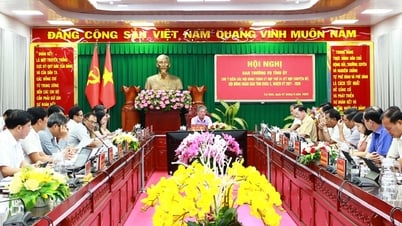

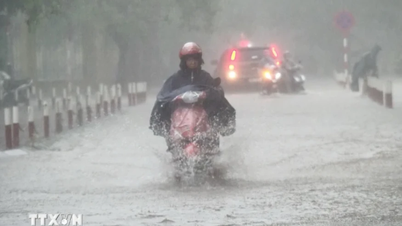


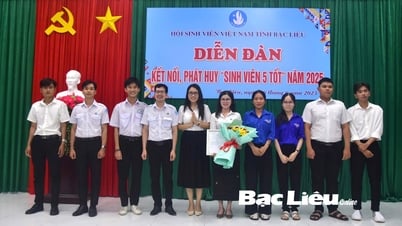





























































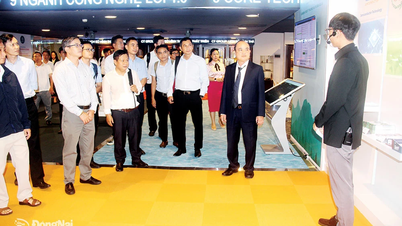








![[OCOP REVIEW] Tu Duyen Syrup - The essence of herbs from the mountains and forests of Nhu Thanh](https://vphoto.vietnam.vn/thumb/402x226/vietnam/resource/IMAGE/2025/6/5/58ca32fce4ec44039e444fbfae7e75ec)



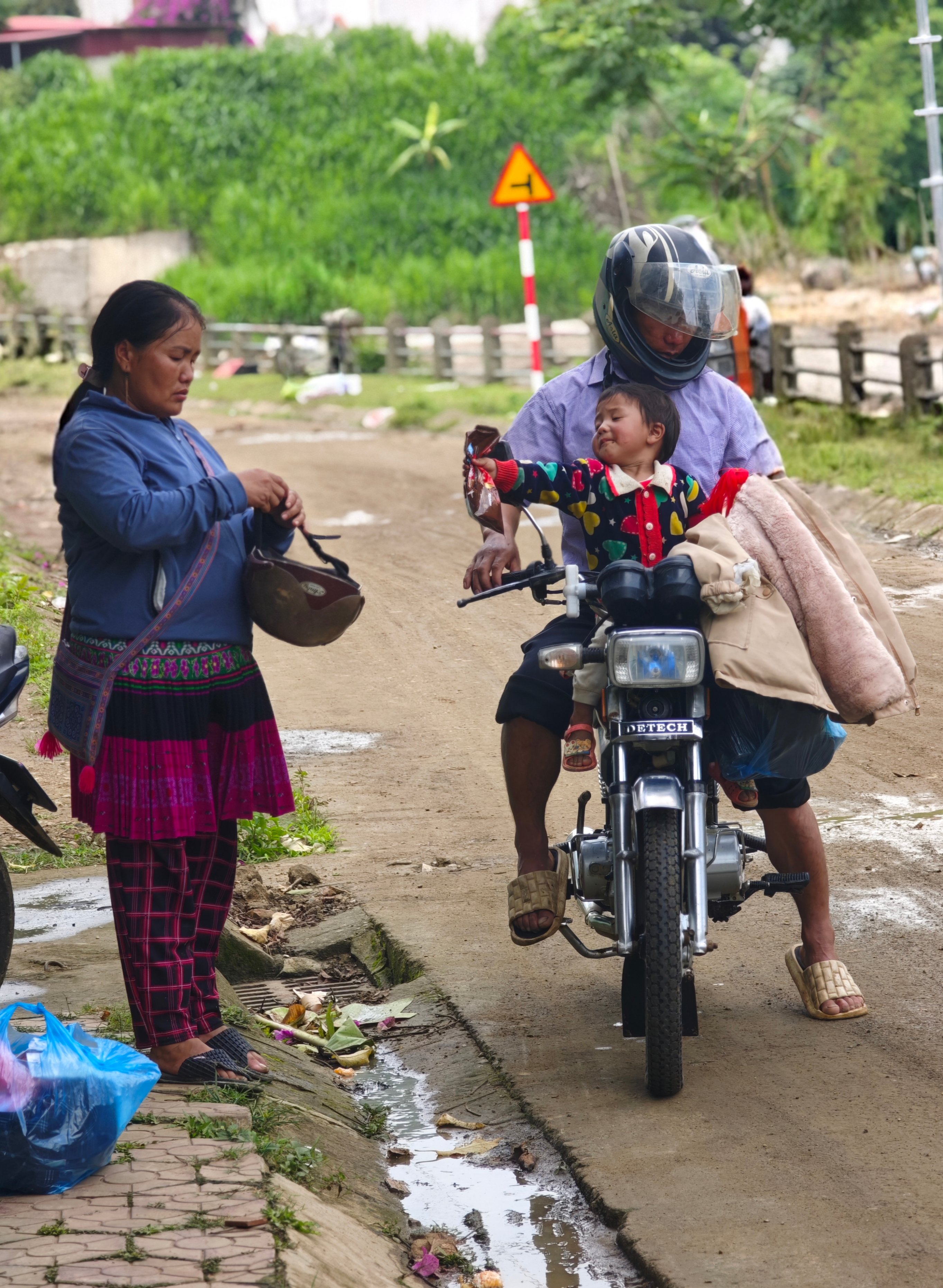



Comment (0)